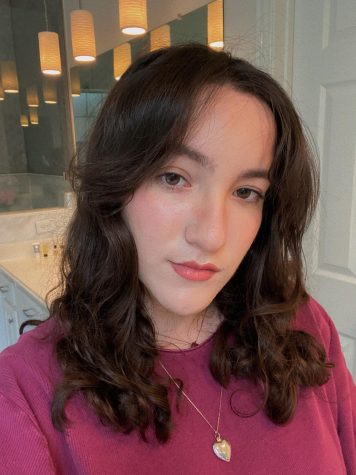Social Media Mania
Social media has provided students with a platform to learn and discuss topics they care about.

October 7, 2020
In today’s political climate, social media has allowed students to speak out on issues they care about. It gives people a platform to spread information and have discussions.With tensions rising due to the upcoming election, having access to information to help shape opinions and learn about voting helps. Some local students have created organizations, such as Katy4Justice specifically to help spread information and educate people.
“Something you may have noticed over the summer onTik Tok and Instagram is a huge rise of informational/educational and normally political content which I love,” senior Erika Alvarez said. “But it’s also a double edged sword because you have people who don’t research well or blatant lies or bad sourcing, but most of the time however these infographics are really really helpful, there’s historical ones where they teach you about events, places, movements..that you may not have learned about in your normal eurocentric history course in high school. For example, I never learned about the Tulsa Race Massacre until this summer when I was reading about it through instagram infographics and then they also talk about current events and stuff that brings awareness about stuff the world is facing right now.”
Alvarez is one of the founders of Katy4Justice, a student led organization. The group has helped organize protests for Black Lives Matter (BLM), and have created a fundraiser for Tony’s Place, a shelter for homeless, LGBTQ+ kids. They have spread awareness about these events almost entirely on social media.
“Social media was so useful for our protest,” Alvarez said. “So,for example, what I normally do every time we have a student council event and you have a lot of students following you, you add it on snapchat or something. We’ll create a graphic and just send it out and ask a bunch of people to repost and eventually it’ll take over a dozen peoples stories.That’s a really good way to get the word out. That’s how we did it for the protest but we just took it to the max, so Jeffery[Jin] made a graphic and we sent it out and asked people to repost and then we came to like a day later it was on everyone’s social media, on their Snapchat, on their Instagram, it was everywhere, every single kid had heard about it and was reposting or swiping up and asking for a picture to repost or sending it to their families stuff like that, social media was so useful for getting the word out. We actually had to change the location of the protest halfway through because it was originally going to be in Mary Jo Peckham park because we thought we would have maybe 200 kids but when we realized it’s blowing we were like hey Mary Jo Peckham park is not big enough for what’s going to happen and we had to change locations. The only reason people didn’t show up to the wrong park is because of social media we were able to like efficiently get the word out for the location change everyone that was planning to go was informed and I don’t think anyone showed up at Mary Jo Peckham and showed up to the right park which was pretty useful.”
Besides helping organize events, social media can help people learn about current events taking place. Many on many different apps people have , making informational infographics, posting links to petitions and posting educational videos. It allows students to form their opinions, and educate themselves.
“It’s something we saw over the summer with the BLM movement, people were not as aware of what was happening as they should’ve been, if they even were aware at all,” Alvarez said. “Maybe there were a few people here and there who were aware, but they didn’t understand the gravity of it until we got that eight minute video of George Floyd, and many realized how huge this problem of police brutality is, and how dangerous it is to Black communities. We need to spread information, we need to bring awareness because we need people to be informed, we need people to be educated and we need to eradicate ignorance because those are the biggest obstacles to change.”

